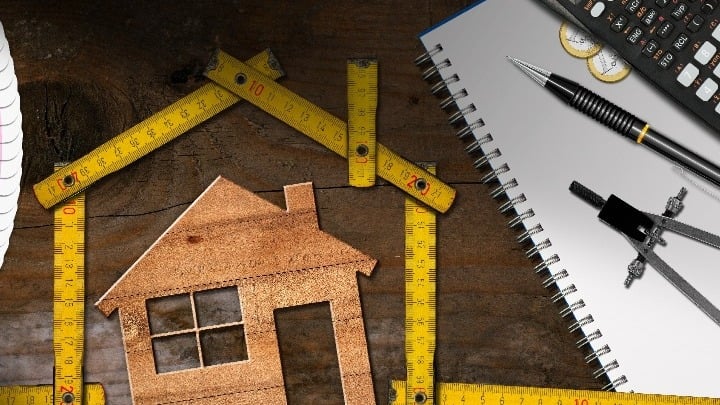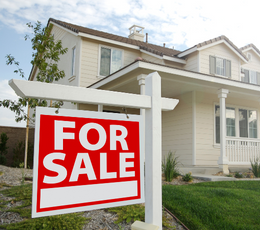Redefining Wealth Through Affordable Homeownership
In a world where the definition of wealth is often equated with financial portfolios and luxurious lifestyles, a quiet revolution is taking place.
5 min read
 Twin Cities Habitat for Humanity
:
10:00 AM on May 30, 2025
Twin Cities Habitat for Humanity
:
10:00 AM on May 30, 2025

As exciting as the homebuying journey can be, many first-time homebuyers find themselves amid real estate lingo and jargon that they've never heard before.
Understandably, this can be overwhelming, and a good Realtor® who specializes in helping first-time homebuyers through this journey will help you, but you'll still want to have a good idea of a few terms before you start making strides. One of these important terms is "home equity."
As you navigate the complexities of homeownership, understanding and leveraging the power of home equity becomes a key factor in shaping your financial future. So, what is home equity? Why is it important? How can you build your home’s equity? And what does market value have to do with it?
Simply put, home equity is how much of your home you truly own at any given time. Home equity is the difference between how much your house is worth today and the amount you owe to pay for it. The size of your home equity depends on three things:
In essence, home equity is how much money you would keep if you sold your home today. If you want to estimate how much equity you might have in your home, here is an easy way: subtract the amount you still owe on your mortgage (the principal balance) from your home’s current market value.
| Current market value of house | - Amount remaining on mortgages | = Your home equity |
| $210,000 | - $145,000 | = $65,000 |
How do you find the current market value of your home? Websites like Trulia or Zillow are pretty good at estimating property value. You should also look at your most recent annual property tax statement. The market value of your home is often somewhere between those two.
How do you find out how much you still owe? Look at your most recent mortgage statement from your lender.
Important note: If you received down payment or purchase help in the form of second mortgage loans and any of those need to be repaid, be sure to add those amounts to your mortgage balance to find out how much total you must pay back.
Owning a home has many advantages: it’s a stable place you can make your own, you can develop relationships with neighbors and your community, and if you have kids, they can stay in the same school. If you buy wisely, your home can also become a financial asset to you. Building equity in your home is a long-term investment strategy that will not only benefit you but can also serve as the building block to generational wealth in your legacy.
Home equity increases slowly, but the longer you live in your house, the more potential home equity you can build. So, each time you make a monthly house payment, imagine it like making a regular deposit in a savings account. The money you pay on your mortgage, plus any increase in the home’s value, is money that you could get back when the house is sold.
It's important to understand that only a portion of your monthly mortgage payment goes toward the principal (or balance). Mortgage payments are amortized–broken down into payments of interest and principal–and a large portion of the initial payments is designated for interest, rather than going towards the principal. While your monthly payment stays the same each month, over time a bigger part of each monthly payment goes to pay down this balance.
Using a loan amortization calculator can help you visualize how much of the mortgage you pay goes toward interest and how much goes into your home equity. As time passes, the balance of the loan decreases and the owner pays more toward the principal rather than the interest on the loan, increasing their home equity.
Keep in mind that property market values—the amount a buyer may be willing to pay for your house—fluctuate over time. Hopefully, the value of your home will go up during the time you live in it, but an increase in value is not guaranteed.
The amount that your property increases in value over time will directly affect the amount of home equity you have in the property. Since that can be difficult to picture, we show three possible scenarios below–when the home value rises, when it stays the same, and when it falls below the purchase price.
|
Purchase price of home |
Current market value of house |
- Amount owed on mortgage |
Home equity |
|
|
House value increases over time |
$185,000 |
$210,000 |
- $125,000 |
= $85,000 |
|
House value remains steady |
$185,000 |
$185,000 |
- $125,000 |
= $60,000 |
|
House value drops |
$185,000 |
$165,000 |
- $125,000 |
= $40,000 |
It may seem a little unfair that the real estate market–something that you have no control over–can impact your home equity so much, especially if it means that your property value decreases. There are, however, plenty of things that you can control!
We previously touched on the importance of paying down your loan principal. If you can afford to make aggressive payments early on when interest will be a large portion of your monthly statement, that can help! It is also not realistic for many people with a strict monthly budget or a fixed interest rate to have predictable payments that remain consistent over time.
That being said, one thing you can do, and it might seem obvious, is care for your home! Maintaining and taking care of your home is not just about keeping up appearances. Each change you make (or don't make) to your home could have a positive or negative effect on your home equity. This is easier said than done, but as most homeowners can attest, staying on top of regular maintenance, and making improvements might seem mundane, but they prevent larger issues from arising and maintain your home's curb appeal. On the flip side, neglecting tasks such as fixing a leaky roof, replacing an aging water heater, or upgrading outdated electrical systems are essential investments that significantly impact the longevity and value of your home.
So, by rolling up your sleeves and addressing both the fun and less glamorous aspects of homeownership, you're not just ensuring a comfortable living space but also safeguarding the long-term health of both your home and your finances. That said, there are a few reliable ways to build equity in your home:
Resource: Affordable Interior Paint and 6 Other Items You Didn't Know ReStore Sold
Whatever you're thinking, look to either ReStore location for the tools and supplies you need to tackle the projects that'll bump up your home value and build equity in your home!
Home equity can be a smart way to build up your assets and have money tucked away that you can count on later in life, all while living in a home that you love. It can take around four to five years to build equity in a home, but as long as you live there, it's all about increasing that number. Buying a home through Twin Cities Habitat for Humanity, where you can be sure you’re able to afford your home, can be a smart way to build up your assets! Learn more about our Homeownership Program.
Your gift unlocks bright futures! Donate now to create, preserve, and promote affordable homeownership in the Twin Cities.

In a world where the definition of wealth is often equated with financial portfolios and luxurious lifestyles, a quiet revolution is taking place.

When you settle into your new home after closing day, a whole new journey begins. You’ll have the chance to turn your property into a true home....

Being a new homeowner is exciting. There’s plenty to look forward to. It’s also a time to let out a sigh of relief–the stress of closing day is over...